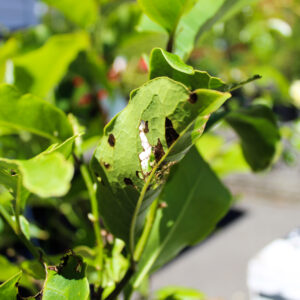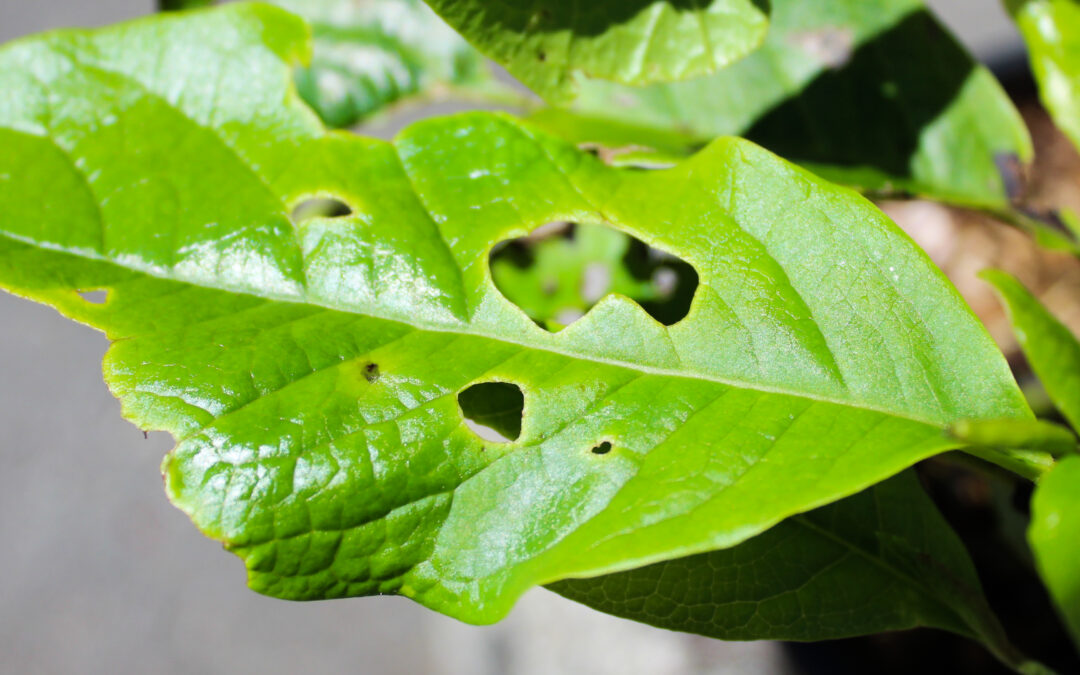With only four types of slugs in Canada, it sure feels like there are more than enough to go around! For as long as we can remember slugs have always been one of the worst pests in the garden. Nibbling tiny little holes in just about everything invites unwanted diseases into our plants, killing all our hard work! Don’t worry, if slugs are causing you problems we’re here to help solve them. In this week’s blog, we turned to our Nursery Experts to see what we can do in the garden to treat slugs.
Signs of Slugs

Since slugs like to feed at night, you will likely not catch them in the act until it’s too late. Once you notice tiny bite-size nibbles turning into large unsightly holes, it’s time to act. These tiny holes are an ‘open invitation for disease and infestation. Immediately prune off the dead leaves or any foliage that has been affected, to prevent further damage.
Ask Our Experts
 When we asked our expert Shawn what his treatment plan for slugs looked like, he sure had a lot to say. It seemed as if he’s tried everything there is and he was happy to share with us what works. Here are five different ways to help treat slugs, from our Nursery Expert, Shawn.
When we asked our expert Shawn what his treatment plan for slugs looked like, he sure had a lot to say. It seemed as if he’s tried everything there is and he was happy to share with us what works. Here are five different ways to help treat slugs, from our Nursery Expert, Shawn.
- “A handy trick to finding your slugs is to place a 1ft 2×6 piece of wood on the surface of the ground, directly under the affected plants. In the early morning, turn the wood over. Depending on where you live, you might find a handful of nocturnal critters. If you’ve collected some slugs, then how you dispose of them is up to you! Repeat this trick as many times as you need.”
- “Did you know, slugs won’t cross copper? Commercially available, copper tape or copper wire can be applied to containers or garden bed frames, to prevent slugs from getting into your crops.”
- “Garter snakes are a big predator of slugs, so if you happen to see some in your garden, let mother nature do its best work at getting rid of them naturally!”
- “Ducks love slugs, keeping ducks around your garden not only gets rid of slugs but also creates many, many other benefits for your plants!”
- “Above all, the best practice for keeping slugs away from your garden is to keep your yard and compost, neat and tidy. Denying slugs the natural habitat they need to live.”


